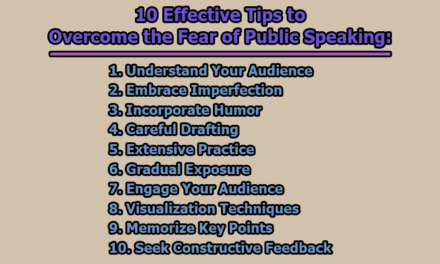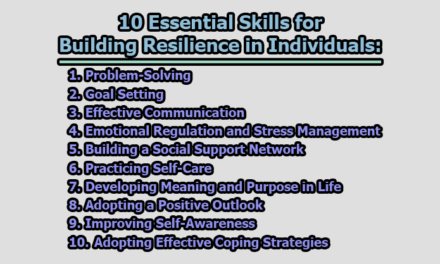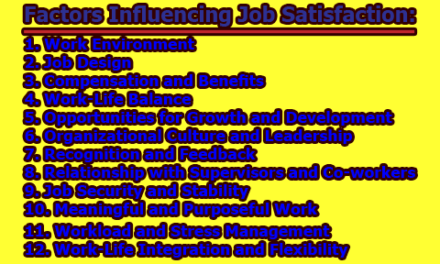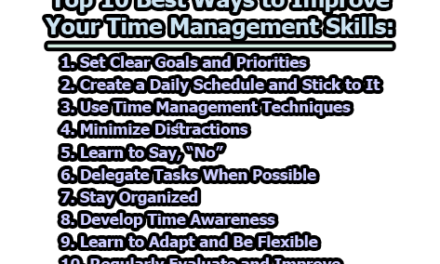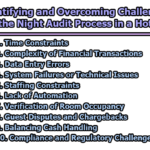How Students and Graduates Should Research IT and Technology Employers:
In today’s rapidly evolving job market, securing a position in the field of information technology (IT) and technology requires more than just technical skills and academic qualifications. Employers seek candidates who not only possess the necessary expertise but also demonstrate a genuine understanding of their organizations and a strong alignment with their values and goals. To accomplish this, students and graduates must conduct comprehensive research into potential employers. This article provides a guide on how students and graduates should research it and technology employers, offering a thorough research checklist and exploring the most appropriate sources for gathering information.
Why Research Matters for IT and Technology Job Seekers:
Thorough research is an essential aspect of job hunting in the IT and technology sector. When candidates invest time in learning about potential employers, they gain several advantages:
a. Tailoring Applications: By understanding an employer’s specific projects, clients, and industry presence, candidates can tailor their applications to showcase how their skills and experience align with the company’s needs.
b. Impressing Recruiters: Demonstrating in-depth knowledge about an organization during interviews or application essays highlights a candidate’s enthusiasm and genuine interest in the company, setting them apart from other applicants.
c. Making Informed Career Decisions: Researching an employer’s culture, reputation, and career development opportunities helps candidates determine whether the organization aligns with their long-term career goals.
d. Answering Interview Questions: Employers often ask interviewees questions like “What do you know about our company?” or “What distinguishes us from our competitors?” Research enables candidates to respond confidently and impressively.
Research Checklist: What You Need to Know Before Applying
To conduct a thorough investigation, job seekers should follow a comprehensive research checklist. The following categories and questions provide an outline of the key areas candidates should explore:
- Company Basics:
Understanding the core of a company’s business and operations is fundamental to tailoring applications and demonstrating genuine interest. Candidates should investigate:
- What products or services does the company offer? Does it specialize in technology consulting, financial software development, or other IT-related domains?
- Key milestones in the company’s history, such as significant achievements, awards, mergers, acquisitions, and notable projects.
- The company’s geographical locations, markets of operation, and headquarters.
- Different divisions within the company and how they align with the candidate’s career aspirations.
- The company’s major clients and customers, specifically focusing on the relevant division’s customer base.
- Identifying key competitors and understanding what sets the company apart from its rivals.
- The company’s growth strategy and the reasons behind its expansion or success.
- In the News:
Staying informed about recent news and developments related to the employer is crucial to understand how external factors might impact the company’s projects and operations. Candidates should investigate:
- Major news stories, industry trends, and technological advancements that could potentially affect the company’s work.
- Notable developments and achievements from the past few years, such as new product launches, projects, mergers, acquisitions, and successful contracts.
- Industry-specific patterns, such as annual cycles or trends, that could influence the employer’s operations.
- The Role You Are Applying For:
A clear understanding of the specific job or graduate scheme is essential for aligning the candidate’s skills and interests with the employer’s requirements. Candidates should explore:
- The available jobs or graduate schemes and whether they are more technical or business-focused.
- Job requirements, such as specific degrees, grades, competencies, and skills sought by the employer.
- The technical skills required, such as proficiency in specific programming languages or software.
- The role’s significance within the overall business structure and how it contributes to the company’s objectives.
- Opportunities for training and career development, as well as the potential for travel.
- The career paths of previous graduates who have worked at the company, providing insights into potential future opportunities.
- The recruitment process, including whether the application requires a CV, application form, interviews, or assessment centers.
- The application deadline and appropriate contact information for submitting applications.
- Company Culture:
Understanding a potential employer’s values, reputation, and work environment is essential for determining cultural fit and long-term career satisfaction. Candidates should explore:
- The company’s core values, objectives, and mission statement.
- The employer’s reputation within the IT and technology sector and the perception of its brand.
- The company’s portrayal in the media and on social media platforms, which offers insights into its public image and communications.
- Opportunities for socializing and team-building activities within the company, such as sports teams, networking groups, or team events.
- The personal reasons that attract the candidate to the employer and how the company aligns with the candidate’s professional aspirations.
Where to Start Your Research into IT and Technology Employers:
The process of research may seem overwhelming, but breaking it down into manageable steps can make it more effective. The following are some recommended approaches and sources for gathering information about IT and technology employers:
i. Use Personal Experience: If the candidate has any prior experience with the employer, such as internships, placements, or personal visits, they should refer to their notes and observations about the company’s culture, work environment, and the people they interacted with. Personal experience provides unique insights and may give the candidate an advantage in interviews or application essays.
ii. Leverage Your Network: Networking is a powerful tool for gathering information about potential employers. Building a professional network and connecting with current employees can provide valuable insights into the company’s work environment, culture, and values. Candidates can attend networking events, career fairs, and social gatherings to make connections within the industry.
iii. Social Media: Social media platforms such as Twitter and LinkedIn are valuable resources for networking and staying up-to-date with industry news. Candidates should follow technology news providers, industry websites, employers, and professionals to gain insights into recent developments and trends. Engaging in discussions and joining relevant groups on LinkedIn can deepen the candidate’s knowledge and expand their network
iv. Company Websites: The employer’s official website is a primary and reliable source of information. Candidates should explore various sections of the website, including press releases, department overviews, project details, research sections, and information about the company’s culture and values. Many employers also maintain dedicated careers sites, where they provide tips and advice on how to excel in their selection processes and offer insights into their graduate positions.
v. Read Newspapers and Industry Publications: Reading newspapers and industry-specific publications provides valuable insights into industry trends and developments. Candidates should follow stories over time to gain a deeper understanding of the IT and technology sector. Technology industry publications like techrepublic.com, wired.co.uk, itpro.co.uk, and computerweekly.com are excellent sources of industry insights.
vi. University Careers Services: University careers services are valuable resources for students and graduates seeking employment. They often have information about employers, including those with established relationships with the university. University careers services regularly interact with recruiters and alumni and organize events such as careers fairs and employer presentations, offering additional networking opportunities.
In conclusion, thorough research into IT and technology employers is an indispensable tool for students and graduates striving to secure promising career opportunities in this dynamic field. By investing time and effort into understanding a company’s core values, projects, clients, and industry presence, candidates can tailor their applications to align perfectly with the employer’s needs and objectives. Furthermore, in-depth knowledge gained through research allows job seekers to impress recruiters, demonstrate genuine interest, and confidently answer interview questions. Equipped with a clear understanding of company culture, reputation, and career development prospects, candidates can make informed decisions about their future career paths. By utilizing personal experiences, networking, social media, company websites, newspapers, and university career services, aspiring IT professionals can position themselves as knowledgeable and enthusiastic candidates, standing out in the competitive job market and finding their ideal employers in the ever-evolving landscape of IT and technology.
Frequently Asked Questions [FAQs]:
Why is researching IT and technology employers important for students and graduates?
Researching potential employers is crucial for students and graduates seeking IT and technology positions as it helps them tailor their applications, demonstrate genuine interest, and make informed career choices. Thorough research allows candidates to align their skills and aspirations with the company’s needs and objectives, making them stand out in a competitive job market.
What should I research about a company’s history and operations?
When researching a company, focus on its products or services, key milestones, locations, markets of operation, headquarters, divisions, clients, competitors, and growth strategies. Understanding these aspects provides valuable insights into the company’s trajectory and standing within the industry.
How does researching the news benefit job seekers?
Staying updated on industry news and developments helps candidates understand how external factors may impact the company’s work. Being aware of technological advancements, economic changes, and regulatory shifts allows candidates to discuss relevant topics during interviews and showcase their industry awareness.
What information should I gather about the role I’m applying for?
Learn about the available jobs or graduate schemes, specific requirements (e.g., degrees, competencies, skills), technical skills needed (e.g., programming languages, software proficiency), and how the role fits into the company’s overall structure. Additionally, research the training and career development opportunities associated with the role.
How can company culture research influence my decision-making process?
Understanding a company’s core values, reputation, and work environment helps candidates determine if the organization aligns with their long-term career goals and personal aspirations. A positive cultural fit can contribute to job satisfaction and success in the role.
What are the recommended sources for gathering information about employers?
Candidates can leverage personal experience, networking, social media platforms like Twitter and LinkedIn, company websites (including dedicated careers pages), newspapers, and university careers services for valuable insights into potential employers.
How can I make my application stand out through research?
Tailor your application to highlight how your skills and experiences align with the company’s specific needs and projects. Demonstrating genuine enthusiasm and knowledge about the employer can impress recruiters and make you a more memorable candidate.
How should I prepare to answer interview questions related to the company?
Thoroughly researching the company allows you to confidently respond to questions like “What do you know about our company?” or “What sets us apart from our competitors?” Be ready to discuss the company’s products, projects, recent achievements, and any industry-specific trends that may be relevant.
How can I use networking to gather information about potential employers?
Attending networking events, career fairs, and social gatherings provides opportunities to connect with current employees who can offer valuable insights into the company’s work environment, culture, and daily operations.
What if I can’t find all the information I need?
If you are unable to find specific information through traditional sources, consider reaching out directly to the company’s HR department or employees through professional networking platforms like LinkedIn. Additionally, university careers services may have information and contacts that can assist you in your research.

Former Student at Rajshahi University


